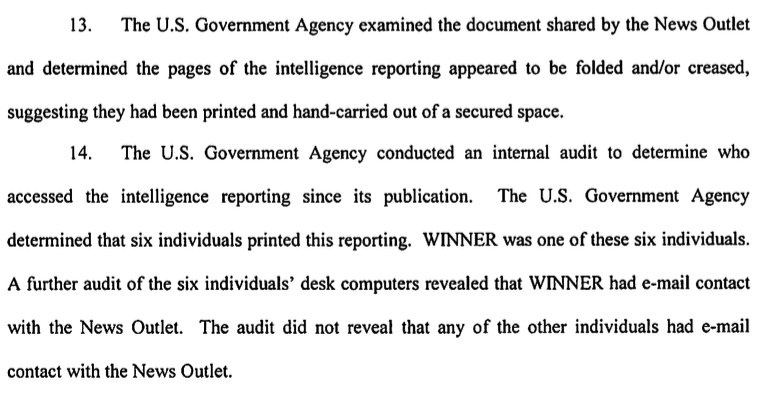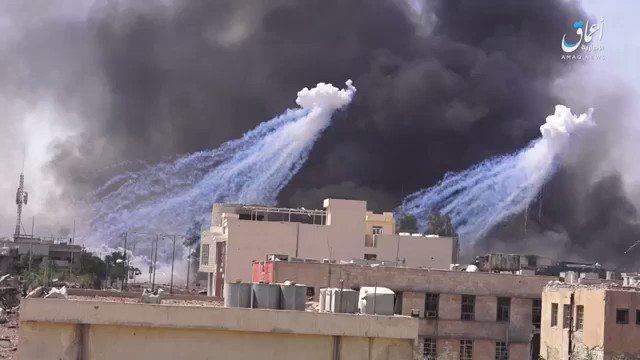when i wrote 'remember when 'the intercept' was supposed to be a...'?
and i talked about what a disappointment 'the intercept' was turning out to be?
i didn't know the half of it.
- Yasha Levine Retweeted
- Yes. Pierre Omidyar always reserved the right to rat out leakers if it was in his material self-interest.
- Yeah, @theintercept shared the leaked document with the USG. That's how the leaker was caught. Jesus. What a bunch of dangerous amateurs.
another proud moment for 'the intercept.'
let's close with c.i.'s 'Iraq snapshot:'
Monday, June 5, 2017. Chaos and violence continue, The Mosul Slog
continues, White Phosphorus resurfaces in Iraq, and much more.
The US bombed a hospital today. A hospital full of sick people & kids & doctors. 488 died in Iraq & Syria. Manchester is part of global war.
Where's THE NEW YORK TIMES' coverage of that?
They can offer this:
Iraqi forces are closing in on the Islamic State’s stronghold in Mosul's Old City
But not White Phosphorus coverage.
Check our archives, they've always had a problem with reporting on White Phosphorus.
Not everyone outlet in the west falls silent. Australia's NINE NEWS reports:
Iraqi forces have been accused of using the controversial and deadly war weapon white phosphorus in an attack on ISIS-held areas in western Mosul.
An explosion was captured on a Kurdish TV station who were livestreaming on Saturday when Iraqi forces made their move.
Stills from the blast showed it appeared to have the signature bright white plume of smoke which follows a white phosphorus attack, Human Rights Watch told Al Jazeera.
It's day 229 of The Mosul Slog.
The operation was supposed to last a few weeks.
Now it's 229 days old.
Not a lot of good things to show for it.
Human Rights Watch issued an alert:
Again, 229 days.
The United Nations News Centre notes:
Some 100,000 children remain in extremely dangerous conditions in western sections of Iraq’s Mosul city as fighting between Government and terrorist forces continues, the United Nations children’s agency today reported, warning that “children’s lives are on the line.”
“We are receiving alarming reports of civilians including several children being killed in west Mosul,” said Peter Hawkins, the UN Children’s Fund (UNICEF) Representative in Iraq, in a statement, noting that boys and girls are being killed, injured and used as human shields as the fighting intensifies by the hour.
An estimated 100,000 girls and boys remain in extremely dangerous conditions in the Old City and other areas of west Mosul, he said, calling on all parties in west Mosul to keep children out of harm’s way at all times.
“Attacks on civilians and civilian infrastructure including hospitals, clinics, schools, homes and water systems should stop immediately,” Mr. Hawkins said.
Children's lives remain at stake because the government told them not to leave Mosul when the operation began and waited until late April to finally say otherwise.
Even then, the Baghdad-based government failed to provide a safe passage out of Iraq, leaving thousands and thousands at risk.
In other news, RUDAW reports:
Iraq’s internal incomes in the oil sector alone since the fall of Saddam Hussein’s regime from 2003 to 2016 had reached nearly $722 billion, of which 57 percent of this portion is exported outside of the country with another $112 billion missing.
“We have six precise reports in hand on transferring cash outside of the country, indicating that 57 percent of the cash made in Iraq is sent outside,” Ahmed Haji Rashid, head of the finance committee in the Iraqi parliament, told Rudaw.
“What the government is using now is $115 billion and the private sector retains $58 billion. But $112 billion is still missing,” he noted.
Commenting on committees formed to follow up on the fate of the cash flow out of the country, he explained, “work has been done but courts in this country are not assistive."
Nouri al-Maliki, former prime minister of Iraq and forever thug, enriched himself during his two terms as prime minister and his son also suddenly had a ton of money which was used to buy sportscars and various residences in the west.
Matt Purple (RARE) reminds the Iraq War has been a circle repeat:
That should sound like deja vu. Remember, the
reason ISIS was able to rampage across Iraq in the first place was
because it was welcomed by Sunnis weary of being abused by Shiite forces
under the control of former prime minister Nouri al-Maliki. Now
oppression has come to Sunni Iraq once again under the PMUs. Another
violent Sunni counter-reaction seems inevitable, and then on we go.
The good news is that the PMUs are caught in the middle of a struggle for the future of Iraqi Shias.
The three key figures to watch here are Maliki, back from ignominy and
brandishing the PMUs that he helped create; Prime Minister Haider
al-Abadi, who understands the PMUs are essential to defeating ISIS but
wants to restrain them; and Moqtada al-Sadr, who’s reinvented himself as
a populist with a focus on economic issues and wants to disband the
PMUs entirely. Iraq is majority-Shia, but its general interpretation of
Shiite Islam tends to be less extreme than Iran’s, meaning it’s possible
that moderation may still prevail, either from Abadi’s good sense or
Sadr’s outsider pressure. The PMUs themselves are also diverse—not all
are committed to sectarian suppression.






